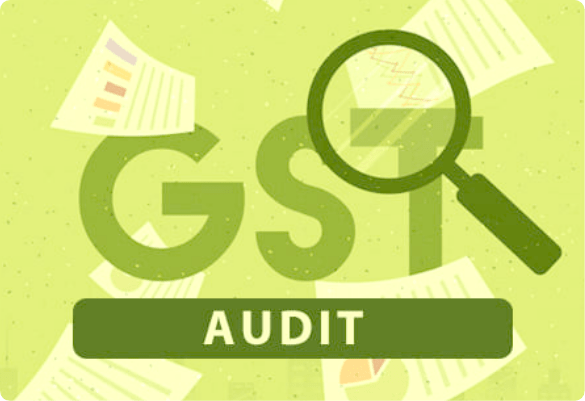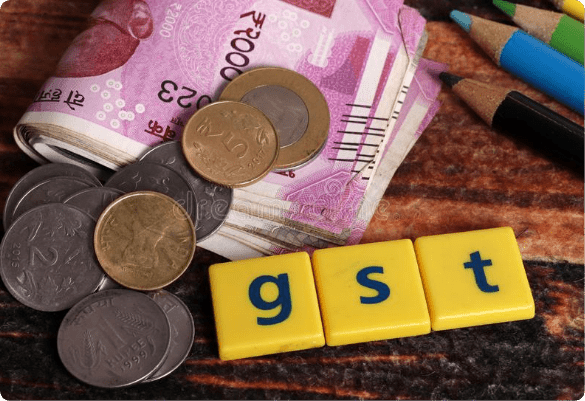The Indian Government’s objective to introduce Goods and Services Tax (GST) in India was to bring uniformity within the Indian taxation structure and avoid the cascading effect into the indirect taxation realm.
However, initially businesses struggled to keep up with the GST framework and some still struggle to do so. There are some genuine difficulties faced by the taxpayers right from obtaining the GST registration to availing of Input Tax Credit.
Recently, Honorable Gujarat High Court has taken serious note of the difficulties faced by the small taxpayers or common man in complying with the GST Rules while obtaining a GST Registration.
In this dedicated article, we have tried to enlighten our readers with some of the major issues faced by the common man in GST realm and the existing taxpayers registered under Goods and Services Tax (GST).
Impact of GST on MSMEs
Small & Medium enterprises are the primary growth drivers of the Indian economy. Hence, it is very important to understand the effects of GST on this sector and the areas of GST where these sectors are struggling.
Before going into the challenges the MSME sector has been struggling with, let us give you a brief idea of the changes that are adapted post introducing GST system.
Positive Impacts of GST on MSMEs
- New business launch has become easier
- In the pre-GST era if a small enterprise had to expand to other states, they were required to register under VAT with every state’ Sales tax department they expanded to.
- Every state had different tax rules and business owners were required to different procedural & registration fees.
- As GST has brought uniformity in the taxation industry, the rules have now become uniform in all the states.
- The only action that the business needs to take is to register himself in the GSTN portal and furnish the supporting documents.
- Hence, expanding businesses into new states from your place of business has now become easier with GST
- Cascading effect of taxes is now eliminated
- GST has eliminated the overlapping of the Central taxes like Excise, Custom Duty, Service tax with the State taxes like VAT, purchase tax, etc.
- GST has now imposed same tax on the goods and services all over India.
- This helped in bringing the price fluctuation of goods & services to a considerate level.
- Goods & Services distinction will be eliminated
- In the pre-GST regime, the VAT & services tax was calculated individually.
- With the GST in picture, this distinction has now been eliminated as the GST amount is calculated on the final total of the transaction and not the individual services or goods.
- GST will help in keeping the invoicing simpler and also help the businesses to take advantage of the tax incentives.
Some of the other positive impacts GST has had on MSMEs are as follows:
- Lower overheads
- Lesser tax burden due to Input Tax Credit provision
- Smaller traders can opt for Composition Scheme under GST
- Higher exemptions to the new businesses
- Compliance procedure is now online, etc.
Negative impacts of GST on MSMEs
Following are some of the negative sides that the MSMEs are experiencing in GST system:
- Although compliance has now moved online, the compliance costs have shot up.
- Businesses are now required to have excess working capital with them.
- Realignment of Purchase & Supply chain is now impacted
Challenges faced by MSMEs for GST Implementation
-
- Additional operational costs & other major issues for small businesses
GST has definitely increased the operational cost as far as small businesses are concerned. It is difficult for small businesses to separately invest in computer infrastructure and GST related services from CAs and tax advisors.
Digital literacy is one major hurdle that has held back the GST penetration to the remote strata of the Indian economy.
Also, India has the highest GST bracket of 28% which is even higher than the most developed countries who have adopted GST taxation system. Such high slabs have forced the buyers to purchase from an unregistered dealer or buy from a registered dealer without getting the GST receipt. - Reconciliation under GST? How should I do that?
To explain Reconciliation under GST in the simplest terms is, ‘Matching of GST data of the supplier against the supplier or the books of accounts.’
Needless to say that, Reconciliation is the most important activity in the GST return filing process.
Reconciliation helps businesses to identify gaps in their GST returns and take rectifying actions on these gaps. This allows the businesses to protect them from non-compliance to GST laws.
Now, reconciliation can be done manually or can be automated using an automated GST return filing tool. Manual reconciliation is tedious and there is a high chance that the businesses with lesser manpower will rely on manual reconciliation.
However, manual reconciliation is not accurate and thttps://www.kyss.ai/here is high probability that small errors or gaps in GST return filing are left unseen with the human eye.
Businesses may attract GST Notices and heavy penalties on incorrect reporting of GST returns.
Is there an alternative?Yes. Fortunately, GST return filing related technology has evolved and is enabling businesses to file automated GST returns with 100% accuracy and blazing fast Reconciliations under GST.KYSS is one such platform that will allow you to run a smooth reconciliation of your GST return and allow you to claim 100% eligible input Tax Credit under GST. - E-Invoicing under GST data is stored for 24 hours onlyW.e.f 1st April 2022, businesses with annual aggregate turnover of more than Rs. 20 Crore are mandated to generate e-Invoices for their B2B invoices and other related transactions.This e-Invoice is to be generated on the Invoice Registration Portal (IRP) by uploading the B2B invoice and unique IRN then gets generated.However, businesses must note that the e-Invoice data is stored on the IRP portal only for 24 hours from the time of e-Invoice generation. This can be a problem if in future the details of the e-Invoices are required for auditing or transactional purpose.e-Invoicing solution developed by KYSS helps generate e-Invoices in bulk and this data is stored with the user for as long as they want.
- Amendment after filing is not possibleThis problem is specifically relevant to the GSTR-3B return filing under GST. Amendment of GSTR-3B is NOT possible once it is filed on the GST portal.Following are some of the most common mistakes that make GSTR-3B filing experiences harder:
- Delayed filing of GSTR-3B
- GSTR-3B nil return is NOT filed most of the times
- Debit & Credit notes are NOT adjusted in the GSTR-3B return
- ITC details of Normal Purchases are often NOT furnished in the GSTR-3B consolidated summary.
This is an issue that affects the GST return filing by the taxpayers that heavily rely only on the manual GST return filing.
- GST Refunds take timeMost of the taxpayers & CAs struggle around the GST Refund provision. Although GST refunds are an important aspect to avoid loss of funds, it is a time-consuming and tedious task.Recently many scams have been unmasked around the fake invoices and claiming of ineligible ITC. These activities will require more stringent laws and scrutiny which in turn will increase the GST refund time than usual.
- GST Refunds take timeMost of the taxpayers & CAs struggle around the GST Refund provision. Although GST refunds are an important aspect to avoid loss of funds, it is a time-consuming and tedious task.Recently many scams have been unmasked around the fake invoices and claiming of ineligible ITC. These activities will require more stringent laws and scrutiny which in turn will increase the GST refund time than usual.
- Tax Evaders are causing revenue losses to the exchequer Recently, the CGST authorities have unearthed a fake invoices scam in Surat, Gujarat. The scam amount was whooping Rs. 452 Crore. Delhi based scams regarding the fake ITC claims made headlines during the December of 2021.These were some of the recent examples we have quoted here. Tax evaders do find loopholes in the GST system and this severely impacts the contribution of an honest taxpayer who accurately & timely files all his GST returns and also causes revenue losses to the exchequer.
- Additional operational costs & other major issues for small businesses
Way ahead for the Indian MSMEs
Micro, Small and Medium Enterprises have a lion’s share in the Indian GDP and in the economic development of India. Their contribution to the form of manufacturing output and generation of employment opportunities cannot be ignored.
Hence, it is essential that the MSME sector gets adapted to the GST taxation system for smoother GST return filing.
We can agree that there are many challenges in front of MSMEs on the GST front, in spite of all these challenges there are automated GST filing solutions that can enable you to easily file your GST returns without any hassle.
The automated GST filing solutions like KYSS allows you to:
- Hassle-free GST return filing.
- Automated reconciliations to identify errors and file 100% accurate GST returns.
- Claim 100% eligible GST Input Tax Credit and stay away from the ineligible ITC under GST.
- Identify the defaulting GST suppliers by uploading supplier data in bulk.
- Generates a comprehensive report and sends them to the concerned stakeholders.
- Automated notifications to the identified GST defaulting supplier.
- Authentic GST data – directly fetched from the GSTN portal.
Frequent follow-ups – The automated tracker works on data-driven insights. Hence, for a non-responsive supplier, regular follow-ups will be scheduled.
GST is counted as one of the most crucial tax reform post-Independence. The objective of ‘One Nation One tax’ now seems possible. However, to make GST acceptable by smaller & medium enterprises it is essential that everyone’s representation is considered by the government so that even a smaller taxpayer can file his GST return without hassle and even claim eligible ITC without any hassle.
It is the need of the hour to make the GST structure more convenient for the MSMEs. Also, the MSMEs need to do their part by complying with all the GST laws and getting their GST infrastructure ready for smoother GST return filing.






